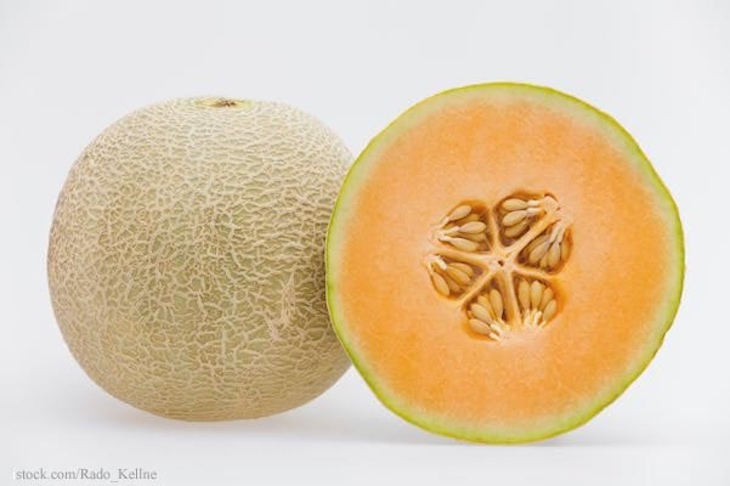The Salmonella Carrau outbreak just announced by the CDC that is linked to precut melons produced by Caito Foods has sickened at least 93 people. This is not the first time that melons have caused food poisoning outbreaks in the United States. In fact, the history of melon outbreaks is long.
Since 1985, there have been 1,520 illnesses, 297 hospitalizations, and 36 deaths linked to contaminated melon. Most of these outbreaks were linked to cantaloupes.

One of the big problems with contamination on ready-to-eat foods is that there is no “kill step” before the food is eaten. That means the consumer does not heat the product, which would destroy pathogens. There is zero tolerance for Listeria monocytogenes contamination on ready-to-eat foods, but no such law exists for Salmonella.
History of Melon Outbreaks
Melons have been the source of pathogens that have caused serious outbreaks for years.
- In 2011, a Listeria monocytogenes outbreak that was linked to whole cantaloupe sickened 146 people in 28 states across the country; almost every patient was hospitalized. More than 30 people died and one woman suffered a miscarriage. Three infants were born with listeriosis. The fruit was traced to Jensen Farms in Colorado. Almost every patient was hospitalized in that outbreak. Eventually the FDA pointed to unsanitary handling conditions, including dirty equipment, water pooling near the packing equipment, use of equipment that was difficult to clean, and lack of a cooling system, as the issue in this outbreak. Jensen Farms owners pleaded guilty to criminal charges.
- Also in 2011, a Salmonella Panama outbreak that sickened 20 people was linked to whole cantaloupes that were harvested from a farm in Guatemala.
- In 2012, a Salmonella Typhimurium outbreak linked to Indiana-grown whole cantaloupes from Chamberlain Farms sickened at least 261 people in 24 states. Three people died. An FDA investigation found that there were many problems on the farm, including debris and trash under the conveyor belt, runoff water from the roof flowing onto the brush washer, and uncapped well heads.
- A Salmonella Newport outbreak in the fall of 2017 sickened at least 18 people in 2017 in Washington and Oregon.
- In 2018, a Salmonella Adelaide outbreak that was linked to Caito Foods fresh cut watermelon, honeydew, and cantaloupe sickened at least 77 people in 9 states. Thirty-six people were hospitalized in that outbreak. Lawsuits were filed in this outbreak.
- The current Salmonella Carrau outbreak linked to precut melons sold at Kroger, Target, Walmart, Trader Joes, and Amazon/Whole Foods has sickened at least 93 people in 9 states. Twenty three people have been hospitalized.
Melon Growers Implement Changes
After the devastating outbreaks in 2012 and 2013, cantaloupe growers across the country implemented changes to guidelines used to direct harvest and packing. For instance, packing facilities used foam rollers to clean the melons. That type of material isn’t easy to clean and can harbor pathogens.
Changes to water handling procedures were also made, since washing produce is one of the ways that pathogens are transferred to the flesh from the rind.
There have been no multistate outbreaks linked to whole melons since 2012.
Symptoms of Salmonella Food Poisoning
Once bacteria are on the melon’s rind, they can be difficult to eradicate. The surface of the fruit is deeply crenelated and rough, which makes it easy for bacteria to attach and to hide from cleaning efforts. Salmonella and Listeria monocytogenes bacteria can produce biofilms that protect them from cleaning procedures, even disinfectants.
The symptoms of Salmonella food poisoning include a fever, nausea, vomiting, and diarrhea that may be bloody. If you or anyone you know has been experiencing these symptoms and has eaten precut melon, see your doctor.




